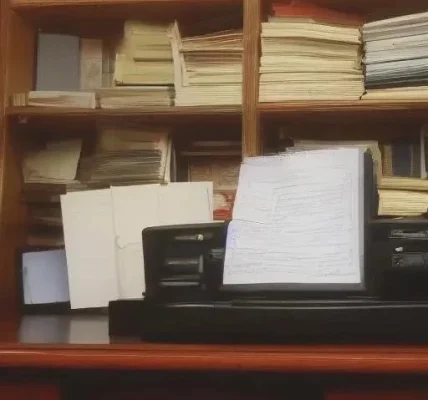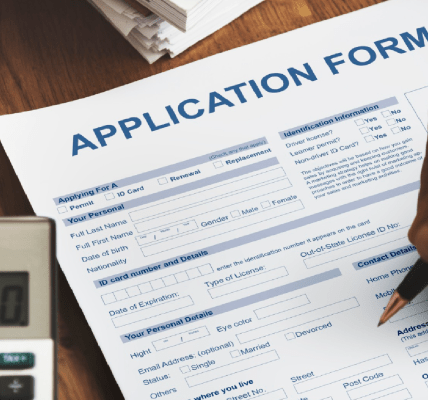The common belief is that cars with automatic transmissions are immune to stalling. After all, the transmission automatically shifts gears, seemingly eliminating the risk of driver error that can lead to a stall in a manual transmission vehicle. However, the reality is more nuanced. While much less frequent than in manual cars, an automatic transmission car can stall, and understanding why is key to preventing and addressing the issue. This article will explore the various reasons behind automatic transmission stalls and what you can do about them.
Understanding Why Automatic Cars Stall
Several factors can contribute to an automatic car stalling. These often relate to issues with the engine, fuel system, or other components that affect the car’s ability to maintain its idle. Unlike manual transmissions, the issue rarely stems from improper clutch engagement. Here are some common culprits:
- Faulty Sensors: Sensors like the Mass Airflow (MAF) sensor or the Crankshaft Position Sensor (CPS) provide crucial information to the engine control unit (ECU). If these sensors malfunction, the ECU may miscalculate fuel delivery or timing, leading to a stall.
- Vacuum Leaks: Vacuum leaks can disrupt the air-fuel mixture, causing the engine to run lean and potentially stall, especially at idle.
- Fuel System Problems: A clogged fuel filter, a weak fuel pump, or faulty fuel injectors can restrict fuel flow to the engine, resulting in a stall.
- Idle Air Control (IAC) Valve Issues: The IAC valve regulates airflow to the engine at idle. If it’s dirty or malfunctioning, the engine may not receive enough air to maintain a stable idle speed, leading to a stall.
- Torque Converter Problems: While rare, a malfunctioning torque converter (the component that transfers power from the engine to the transmission) can sometimes cause the engine to stall, especially when coming to a stop.
Preventing and Addressing Stalling in Automatic Cars
Preventive maintenance is crucial for minimizing the risk of stalling. Here’s what you can do:
- Regular Maintenance: Adhere to the manufacturer’s recommended maintenance schedule, including oil changes, filter replacements, and tune-ups.
- Fuel System Care: Use quality fuel and consider using fuel injector cleaner periodically to keep the fuel system clean.
- Sensor Checks: Have your mechanic check the sensors during routine maintenance to ensure they are functioning correctly.
- Address Warning Signs: Pay attention to any unusual engine behavior, such as rough idling, hesitation, or decreased fuel economy, and address these issues promptly.
Troubleshooting a Stalling Automatic Car
If your automatic car stalls, here are some steps you can take to troubleshoot the issue:
- Check the Battery: Ensure the battery is properly charged and the terminals are clean. A weak battery can sometimes contribute to stalling.
- Look for Obvious Issues: Check for any visible leaks or damaged components under the hood.
- Listen for Unusual Noises: Pay attention to any strange noises coming from the engine, which could indicate a specific problem.
- Consult a Mechanic: If you’re unable to identify the cause of the stall, take your car to a qualified mechanic for diagnosis and repair.
FAQ: Automatic Transmission Stalling
Here are some frequently asked questions about automatic transmission car stalling:
- Q: Is it normal for an automatic car to stall?
A: No, it’s not normal, but it can happen due to various mechanical or electrical issues. - Q: Can a bad alternator cause an automatic car to stall?
A: Yes, a failing alternator can deplete the battery and cause the engine to stall. - Q: How much does it cost to fix a stalling problem in an automatic car?
A: The cost can vary depending on the cause of the stall, ranging from a simple sensor replacement to more extensive repairs.
While automatic transmissions offer convenience and reduce the likelihood of stalling due to driver error, they are not entirely immune to the problem. Understanding the potential causes and taking proactive steps can help you keep your automatic car running smoothly. If your automatic transmission car begins to stall, prompt diagnosis and repair are crucial to preventing further damage and ensuring your safety on the road.
So, you’ve armed yourself with knowledge about why automatic cars stall, but what if the problem persists after seemingly addressing all the usual suspects? Could intermittent electrical glitches be at play, momentarily disrupting the engine’s vital functions? Perhaps a hidden vacuum leak, eluding detection through conventional methods, is the silent culprit? And what about the fuel pump relay – could it be failing intermittently, starving the engine of fuel at unpredictable moments?
Advanced Troubleshooting: Digging Deeper
What if the usual diagnostic tools aren’t revealing the issue? Could a sophisticated scan tool, capable of capturing real-time data during a stall event, provide crucial clues? Is it possible the problem lies within the transmission control module (TCM) itself, causing erratic shifts or torque converter lock-up issues that lead to stalling? Could a clogged catalytic converter be creating excessive backpressure, choking the engine and causing it to stall under load? And have you considered the possibility of a software glitch within the ECU, requiring a reflash or reprogramming?
Beyond the Basics: Exploring Less Common Causes
Are you certain the problem isn’t related to aftermarket modifications, such as performance chips or poorly installed accessories, interfering with the car’s electrical system? Could a faulty evap system be causing pressure imbalances in the fuel tank, ultimately leading to fuel delivery problems and stalls? What if the issue is temperature-dependent, only manifesting under extreme heat or cold conditions, pointing towards a failing sensor or electrical connection? And have you thoroughly inspected the wiring harness for any signs of damage, corrosion, or loose connections that could be causing intermittent shorts or open circuits?
Seeking Expert Help: When to Throw in the Towel?
Have you reached the point where you’ve exhausted all your DIY troubleshooting options? Is it time to consult a specialist experienced in diagnosing and repairing complex electrical and mechanical issues in automatic transmissions? Could a transmission shop, equipped with specialized tools and expertise, pinpoint the problem more effectively than a general mechanic? And what about seeking advice from online forums or communities dedicated to your specific car model – might other owners have encountered similar stalling issues and discovered a solution? Ultimately, isn’t it better to entrust the repair to a qualified professional than risk causing further damage or injury by attempting repairs beyond your skill level?
So, is persistent stalling in your automatic car a frustrating mystery? Perhaps the answer lies in considering these less common culprits and seeking expert help when needed. Remember, a systematic approach and a willingness to explore all possibilities are key to resolving even the most perplexing automotive problems. Good luck, and may your automatic transmission run smoothly evermore!
An automatic transmission car stalling is a perplexing issue that often leaves drivers scratching their heads. Is it simply a quirk of modern vehicles, or a sign of deeper underlying problems? Are the days of reliable automatic transmissions fading, replaced by complex systems prone to unexpected shutdowns? Is there a way to truly understand the intricacies of an automatic transmission and prevent these annoying stalls from happening in the first place?
Unraveling the Mystery: Could It Be Something Obscure?
Could the problem be hiding in plain sight, masked by seemingly normal behavior? Have you thoroughly inspected the mass airflow (MAF) sensor, ensuring it’s clean and functioning correctly? Could a subtle leak in the intake manifold gasket be disrupting the air-fuel mixture, leading to intermittent stalls? Is it possible that the throttle position sensor (TPS) is sending inaccurate signals to the engine control unit (ECU), causing the engine to stumble and stall at low speeds?
- Vacuum Leaks: Could a tiny crack in a vacuum hose, almost invisible to the naked eye, be wreaking havoc on the engine’s performance?
- Dirty Throttle Body: Is carbon buildup restricting airflow through the throttle body, preventing the engine from idling smoothly?
- Faulty Sensors: Are any of the sensors, such as the crankshaft position sensor or camshaft position sensor, sending erratic signals to the ECU, causing the engine to shut down unexpectedly?
Digging Deeper: Are You Overlooking These Possibilities?
Could the fuel pump be delivering inconsistent fuel pressure, leading to fuel starvation and stalling? Is the fuel filter clogged, restricting the flow of fuel to the engine? Could a malfunctioning fuel pressure regulator be causing the fuel pressure to fluctuate, resulting in stalling, especially during acceleration? Is the evaporative emission control (EVAP) system working correctly? Could a faulty purge valve or vent valve be causing vacuum leaks or pressure imbalances that lead to stalling?
The Transmission Itself: Could It Be the Culprit?
Could the torque converter be locking up prematurely or failing to disengage properly, causing the engine to stall when coming to a stop? Are the transmission fluid levels adequate and the fluid in good condition? Is there any evidence of internal damage to the transmission, such as worn clutches or damaged valve body components, that could be contributing to stalling? Does the transmission shift smoothly through all gears, or are there any signs of slipping or harsh shifting that might indicate a problem? Could the transmission control module (TCM) be malfunctioning, sending incorrect signals to the transmission and causing it to behave erratically, leading to stalling?
Beyond the Mechanics: Could It Be Electrical Gremlins?
Is the car’s electrical system properly grounded? Could a loose or corroded ground connection be causing intermittent electrical problems that lead to stalling? Are there any signs of damage to the wiring harness, such as frayed wires or melted insulation, that could be causing short circuits or open circuits? Could a faulty ignition switch be cutting off power to the engine intermittently, causing it to stall? Is the battery in good condition and properly charged? Could a weak battery be struggling to provide enough power to the engine and other electrical components, leading to stalling, especially at idle?
Seeking Professional Help: Is It Time to Surrender?
Have you exhausted all your DIY troubleshooting options and still haven’t been able to identify the cause of the stalling? Is it time to consult with a qualified mechanic who specializes in automatic transmissions? Could a professional diagnostic scan, using advanced equipment and expertise, pinpoint the problem more accurately than your own efforts? Are you willing to invest in a thorough inspection by a trusted mechanic to ensure that the problem is properly diagnosed and repaired?
Ultimately, is resolving the mystery of your automatic transmission car stalling worth the time, effort, and expense? Isn’t it better to have peace of mind knowing that your car is running smoothly and reliably? Perhaps the answer lies in a combination of careful observation, methodical troubleshooting, and expert assistance; So, are you ready to embark on the quest to conquer your automatic transmission car stalling woes?


